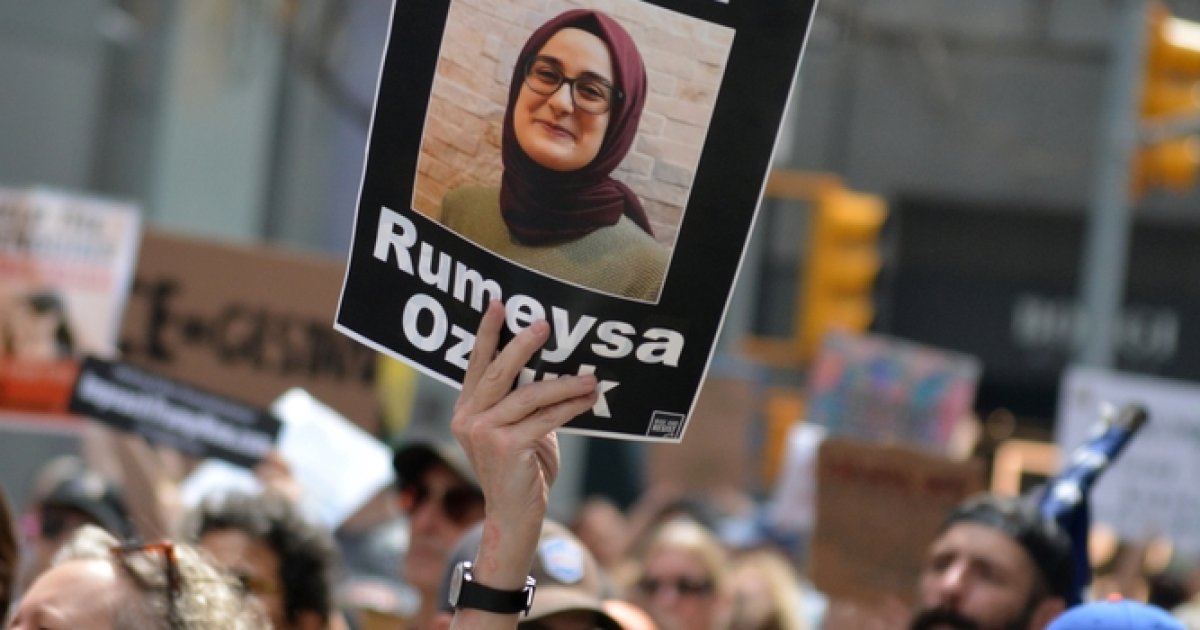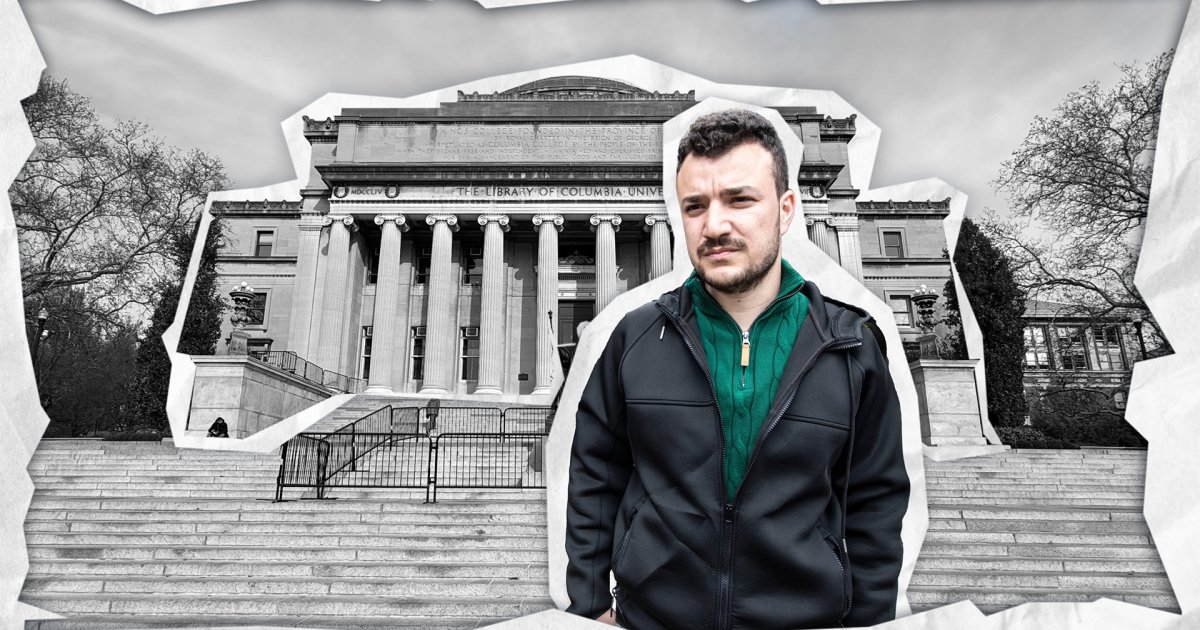FIRE has filed a “friend of the court” brief in support of Rümeysa Öztürk in her lawsuit against the Trump administration. FIRE argues that the U.S. government is unlawfully detaining Öztürk for protected speech and reviving the authoritarian spirit of the Alien and Sedition Acts in the process. The brief’s summary of argument follows.
It is unthinkable that a person in a free society could be snatched from the street, imprisoned, and threatened with deportation for expressing an opinion the government dislikes. Certainly not in the country envisioned by our nation’s framers. America’s founding principle, core to who and what we are as a nation, is that liberty comes not from the benevolent hand of a king, but is an inherent right of every man, woman, and child. That includes “the opportunity for free political discussion” as “a basic tenet of our constitutional democracy.” Cox v. Louisiana, 379 U.S. 536, 552 (1965). And “a function of free speech under our system of government is to invite dispute. It may indeed best serve its high purpose when it induces a condition of unrest, creates dissatisfaction with conditions as they are, or even stirs people to anger.” Terminiello v. City of Chicago, 337 U.S. 1, 4 (1949). For these reasons, along with all citizens, “freedom of speech and of press is accorded aliens residing in this country.” Bridges v. Wixon, 326 U.S. 135, 148 (1945).
Secretary of State Marco Rubio, however, is arresting and detaining a PhD student, Rümeysa Öztürk, not because the government claims she committed a crime or other deportable offense, but for the seemingly sole reason that her expression — an op-ed in a student newspaper — stirred the Trump administration to anger. ICE made a discretionary decision to detain Ms. Öztürk under 8 U.S.C. § 1226(e). See Order, ECF No. 104, at 38. This Court explained that “her detention did not flow naturally as a consequence of her removal proceedings.” Id. The Secretary argues his discretionary power over lawfully present international students includes the authority to order their arrest, detention, and deportation for even protected speech. It does not.
The First Amendment’s protection for free speech trumps a federal statute. United States v. Robel, 389 U.S. 258, 268 n.20 (1967). Accepting Secretary Rubio’s position would irreparably damage free expression in the United States, particularly on college campuses. Foreign students would (with good reason) fear criticizing the current American government during classroom debates, in term papers, and on social media, lest they risk arrest, detention, and eventually deportation. That result is utterly incompatible with the longstanding recognition that “[t]he essentiality of freedom in the community of American universities is almost self-evident,” and that “students must always remain free to inquire, to study and to evaluate, to gain new maturity and understanding.” Sweezy v. New Hampshire, 354 U.S. 234, 250 (1957).
Secretary Rubio claims (as do all censors) that this time is different, that university students’ pro-Palestine (and, as administration officials allege, anti-Israel) views cannot be tolerated. But “if there is a bedrock principle underlying the First Amendment, it is that the government may not prohibit the expression of an idea simply because society finds the idea itself offensive.” Texas v. Johnson, 491 U.S. 397, 414 (1989) (holding the First Amendment protects burning the American flag in protest); see also Snyder v. Phelps, 562 U.S. 443, 454 (2011) (holding the First Amendment protects displaying “God Hates Fags” and “Thank God for Dead Soldiers” posters outside a military funeral).
The government’s actions against Ms. Öztürk harken back to the infamous Alien Friends Act of 1798, which allowed President John Adams to deport any alien deemed a danger to “public safety.” An Act Concerning Aliens § 2, 1 Stat. 571 (1798). It was “one of the most notorious laws in our country’s history,” “widely condemned as unconstitutional,” and “may have cost the Federalist Party its existence.” Sessions v. Dimaya, 584 U.S. 148, 185 (2018) (Gorsuch, J., concurring). Yet today, Secretary Rubio allows a stain of history to repeat itself. This Court must act.
The “First Amendment does not speak equivocally. It prohibits any law ‘abridging the freedom of speech, or of the press.’ It must be taken as a command of the broadest scope that explicit language, read in the context of a liberty-loving society, will allow.” Bridges v. California, 314 U.S. 252, 263 (1941) (invalidating criminal convictions, including of a non-citizen, based on protected speech). Our “liberty-loving society” does not permit arrest, detention, and deportation as a punishment solely based on an opinion voiced in a newspaper. The Court should grant Ms. Öztürk’s petition.


